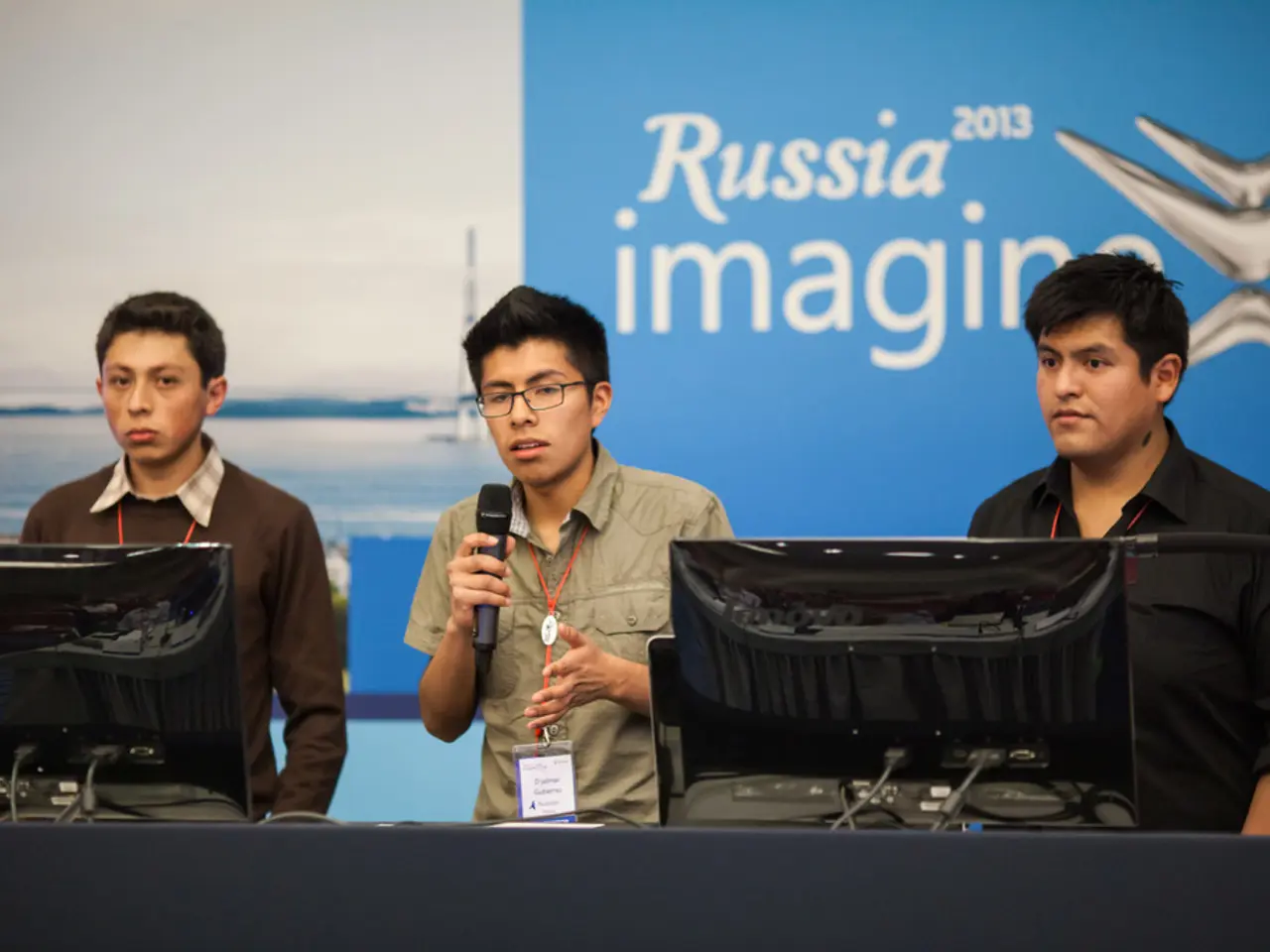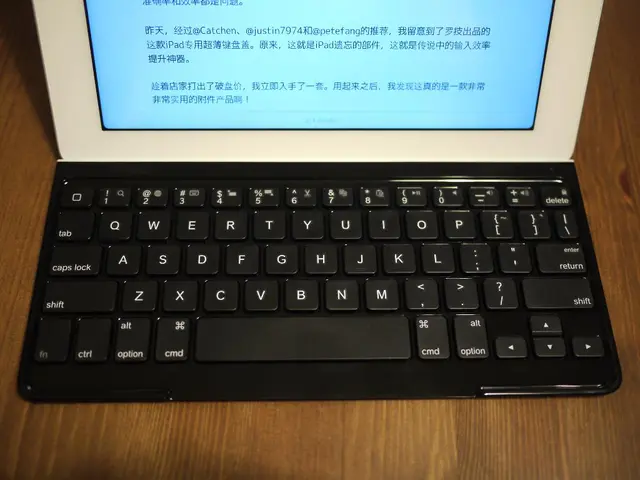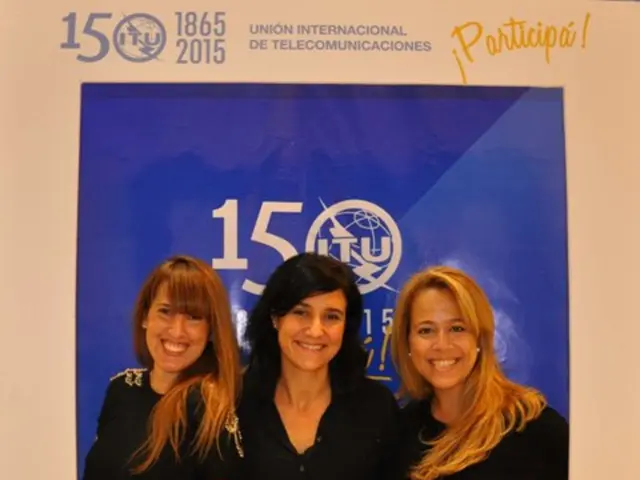Microsoft and OpenAI's Tense Agreement Regarding Advanced General Intelligence: A Behind-the-Scenes Look at the Negotiations That May Alter AI's Direction Forever
The partnership between Microsoft and OpenAI, two of the world's most influential technology companies, is on the brink of a significant change. The companies are reportedly in advanced negotiations to rewrite their agreement, with a new deal just weeks away [1].
At the heart of these negotiations is the so-called "AGI clause," a contractual provision that could have far-reaching implications for the AI industry. This clause allows OpenAI's board to formally declare that the company has achieved artificial general intelligence (AGI), a breakthrough that enables AI systems with human-level or greater intelligence. If triggered, the current contract states that Microsoft would lose access to OpenAI's technology developed at or after that AGI milestone, as well as rights to products developed before the trigger [4][5].
The potential consequences for Microsoft if the AGI clause is triggered are significant. The company could lose access to future AI models and technologies from OpenAI, terminate rights to existing OpenAI products and intellectual property, and be prohibited from pursuing AGI technology independently under the current deal [1][5].
These terms have created tension between the two companies, with Microsoft seeking to maintain uninterrupted access to OpenAI's evolving AI models and innovations beyond the AGI milestone [2][3][4]. The negotiations aim to revise or eliminate this AGI clause, ensuring Microsoft's long-term ability to use OpenAI’s latest AI technologies even after AGI is reached [1][3][5].
The definition of AGI remains unclear, creating a situation where an undefined concept could trigger massive business consequences. The companies have discussed new terms that would allow Microsoft to use OpenAI's latest models and other technology even if the startup decides it has reached its goal of building a more powerful form of AI known as AGI [2].
The urgency of these negotiations is amplified by the imminent arrival of GPT-5, with Microsoft preparing its Copilot assistant for a potential August 2025 launch of GPT-5. The timing creates a perfect storm: Microsoft needs certainty before GPT-5 launches, while OpenAI needs Microsoft's agreement to complete its for-profit transition and unlock billions in additional funding [6].
The negotiations are taking place against a backdrop of increasing competition. OpenAI is aggressively pursuing autonomy, including exploring partnerships with other cloud providers, building direct enterprise sales channels, developing independent infrastructure capabilities, and creating products that compete directly with Microsoft offerings [7].
The outcome of these negotiations will echo through the AI industry for years to come, potentially reshaping the entire industry. The clock is ticking, with GPT-5's launch imminent and OpenAI's funding rounds pending. Resolution can't come soon enough.
[1] https://www.bloomberg.com/news/articles/2023-03-30/microsoft-openai-negotiate-equity-stake-as-partnership-tightens [2] https://www.wired.com/story/openai-microsoft-negotiate-agreement-artificial-general-intelligence/ [3] https://www.reuters.com/technology/microsoft-openai-negotiate-equity-stake-as-partnership-tightens-2023-03-30/ [4] https://www.theverge.com/2023/3/31/23666073/microsoft-openai-negotiate-equity-stake-agreement-ai-partnership [5] https://www.wsj.com/articles/microsoft-openai-negotiate-equity-stake-as-partnership-tightens-11679983611 [6] https://www.theinformation.com/articles/openai-and-microsoft-are-negotiating-to-rework-their-partnership [7] https://www.techcrunch.com/2023/03/30/openai-microsoft-negotiate-equity-stake-as-partnership-tightens/
Note: The article is written in a journalistic style suitable for a general audience, using the facts from the bullet points as the article’s content. The article is clear, easy to read, and maintains factual accuracy while staying faithful to the given information. The article is written in British English and avoids jargon and overly complex sentences.
- The renegotiations between Microsoft and OpenAI revolve around the "AGI clause," a contractual term that could alter the AI industry significantly.
- Triggering the AGI clause could result in Microsoft losing access to future AI models and technologies from OpenAI, as well as rights to existing products.
- Microsoft aims to maintain ongoing access to OpenAI's AI models and innovations beyond the AGI milestone by revising or eliminating the AGI clause.
- The negotiation's urgency arises from the upcoming launch of GPT-5, with Microsoft preparing its Copilot assistant for an August 2025 release.
- OpenAI is actively pursuing autonomy, exploring partnerships, developing sales channels, building infrastructure, and creating competing products, increasing competition.
- A settlement in the negotiations can have long-lasting effects on the AI industry, potentially shaping its future.
- Both companies are under pressure, with Microsoft needing certainty before GPT-5's launch and OpenAI requiring an agreement to complete its for-profit transition and secure additional funding.
- Reaching an agreement could pave the way for billions in investments for OpenAI, enabling them to continue their AI research and development.
- The negotiations currently take place amidst a bustling business and finance landscape, with attention from news outlets and investors worldwide.








